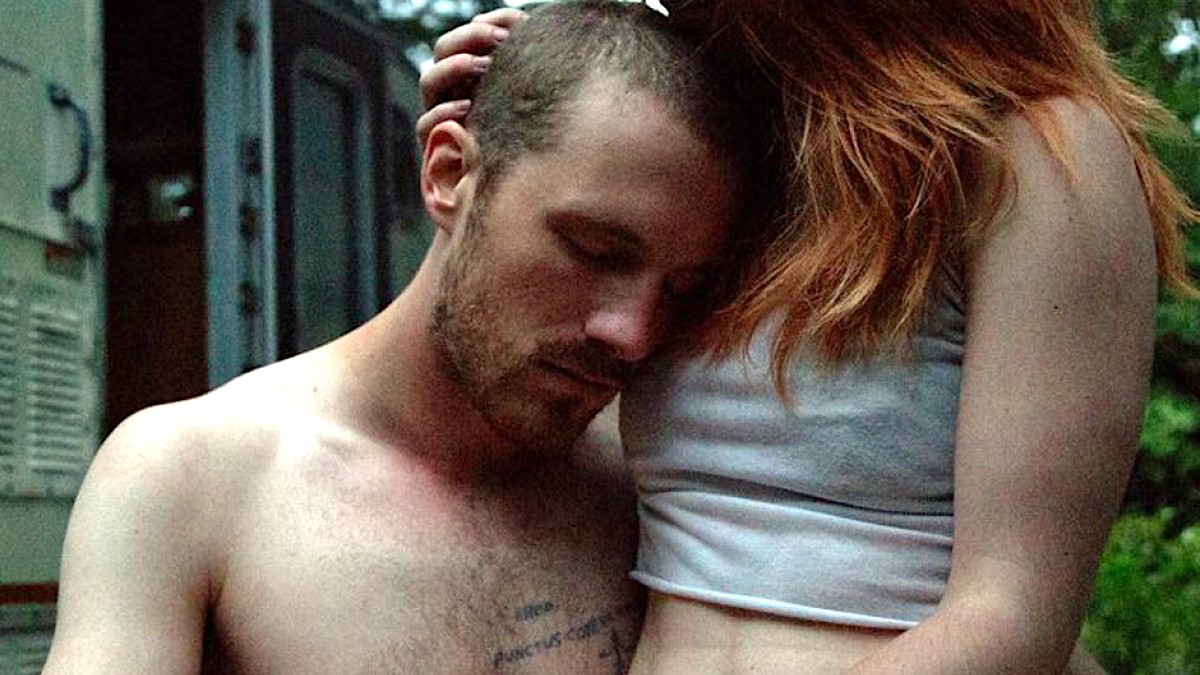04 Mar NY critics voice “admiration and astonishment” for Cape Breton filmmakers
 Seventeen months after its premiere at TIFF, the Cape Breton-made feature film “Werewolf” had its New York debut last week, screening at a 2nd Avenue art house. The New York Times and the New Yorker marked the occasion with accolades of startling warmth.
Seventeen months after its premiere at TIFF, the Cape Breton-made feature film “Werewolf” had its New York debut last week, screening at a 2nd Avenue art house. The New York Times and the New Yorker marked the occasion with accolades of startling warmth.
Times reviewer Glenn Kenney wrote that contemporary films about drug addiction often affect a tone of grim austerity, but added, “[T]he particulars of [New Waterford director Ashley] McKenzie’s approach, and the excellent work of her lead actors, bring new value to the mode.” (The actors in question are Cape Bretoners Bhreagh MacNeil and Andrew Gillis, pictured above.)
The performers don’t seem like they’re acting at all, which contributes to the film’s unsettling power. The elliptical narrative structure articulates a sad truth of the addict’s life concerning both the challenge and the tedium of making it through to the next fix.
The New Yorker’s Ian Brody, who has written about “Werewolf” before, recalled his first impression:
I saw it at the Maryland Film Festival last May, and, while writing about it then, in a state of admiration and astonishment, I fully expected that it would be rushed to waiting audiences. (I also expected it to be included in the New York Film Festival roster, where it would have figured among the best films.) […]
McKenzie’s extraordinary art, both in the construction of the drama and the composition of the images, is an art of the partial, the fragmentary, the symbolic. The action lurches from incident to incident with a quietly expressionistic clash of tones and implications, and McKenzie’s framings distill each of these events into another rarefied level of discoveries and resonances. There are scenes in which Blaise is seen in closeup, arguing with a nurse through the oppression of the glass separating them—but his eyes aren’t seen, only his shoulders, hands, and mouth. It renders the force of his protest all the more poignant, emphasizes the tremulous desperation in his voice.
I note these tributes not just because, disclosure, McKenzie and her longtime producer Nelson MacDonald are friends from the days when I ran an independent film series in Sydney, but because it is so rare for a regional Canadian production to attract praise this lavish from critics this prestigious. The last time I can recall anything like it happened in October, 1970, when The New Yorker’s Pauline Kael lifted “Goin’ Down the Road,” a movie whose opening scenes are set in Cape Breton, to international prominence and widespread recognition as one of the greatest Canadian films of all time.
McKenzie and MacDonald spent $245,000 making “Werewolf,” about half (in inflation-adjusted dollars) what director Don Shebib spent on “Goin’ Down the Road.”
My point is that MacNeil, Gillis, McKenzie, MacDonald, and cinematographer Scott Moore are Cape Breton treasures as worthy of celebration as a hike to MacKinnon’s Brook, a slow air by Wendy MacIsaac, or a day on the Bras d’Or.
